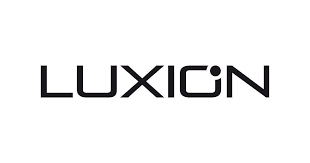How to Choose the Right Translation Service for Your Business
In today’s globalized world, businesses often need to communicate with audiences across different languages and cultures. Choosing the right translation service can make all the difference in reaching new markets, building strong relationships, and ensuring the accuracy of your communications. With so many translation service providers available, it can be challenging to select the one that best fits your needs. This blog post will guide you through the factors to consider when choosing a translation service for your business.
1. Understand Your Translation Needs
Before searching for a translation service provider, it’s important to define your specific needs:
- Type of Content: Are you translating marketing materials, legal documents, technical manuals, or website content? Different types of content require different levels of expertise.
- Languages: Identify the languages you need to translate your content into, and make sure the provider has native speakers or experts in those languages.
- Volume and Frequency: Consider whether you need a one-time translation or ongoing support for large volumes of content.
Understanding your requirements will help you narrow down your options and find a provider that specializes in your industry and language pair.
2. Evaluate the Provider’s Expertise and Experience
Not all translation services are created equal, and experience matters. Look for a provider with a proven track record in your industry:
- Industry Specialization: Some translation agencies specialize in specific fields, such as legal, medical, technical, or financial translation. Make sure the provider has experience handling content in your industry.
- Certifications and Qualifications: Check whether the translators are certified and have the necessary qualifications. Look for ISO certifications or memberships in professional translation organizations as a sign of quality.
3. Check the Quality Assurance Process
High-quality translations go through multiple stages of review, including proofreading and editing. Ask the provider about their quality assurance process:
- Proofreading and Editing: Does the provider have a dedicated team of proofreaders and editors who review the translations for accuracy and cultural relevance?
- Use of Technology: Many translation providers use computer-assisted translation (CAT) tools to maintain consistency and improve efficiency. Ask how they leverage technology while ensuring the human touch remains.
4. Assess Their Linguistic and Cultural Expertise
A good translation service doesn’t just translate words; it adapts content to fit the cultural and linguistic norms of the target audience:
- Cultural Sensitivity: The provider should have a deep understanding of cultural nuances and local customs. This is especially important for marketing and localization projects.
- Native Speakers: Ensure that the translators are native speakers of the target language, as they will have a better grasp of cultural and linguistic subtleties.
5. Review Their Portfolio and Case Studies
A reputable translation service provider should be able to showcase their past work and share case studies or testimonials from satisfied clients:
- Client Testimonials: Read reviews and feedback from other businesses that have used their services. Positive testimonials and case studies can give you an idea of the provider’s strengths.
- Sample Translations: Request sample translations to assess the quality of their work and see if it meets your standards.
6. Consider Their Technology and Tools
Modern translation agencies often use advanced technology to streamline the translation process and ensure consistency:
- Translation Memory (TM): Ask if they use translation memory tools, which help maintain consistency and reduce costs for repetitive content.
- Glossaries and Style Guides: Check whether they create and maintain glossaries and style guides to ensure consistent use of terminology.
7. Discuss Turnaround Times and Flexibility
Time is often a critical factor in translation projects, especially for businesses that operate globally:
- Turnaround Times: Ask about their average turnaround times and whether they offer expedited services for urgent projects.
- Scalability: If your business is expanding, choose a provider that can scale with you and handle increasing volumes of content as needed.
8. Assess Data Security and Confidentiality
Confidentiality is crucial, especially if you are translating sensitive or proprietary information:
- Data Security Measures: Inquire about the provider’s data security protocols, such as encryption and secure file transfer methods.
- Confidentiality Agreements: Ensure that the translation service is willing to sign non-disclosure agreements (NDAs) to protect your data.
9. Compare Pricing Models
Translation services vary in cost, so it’s important to find a provider that offers transparent and competitive pricing:
- Pricing Structure: Some providers charge per word, per hour, or per project. Compare pricing models and understand what is included in the cost, such as proofreading and project management.
- Value vs. Cost: While it’s tempting to choose the cheapest option, remember that high-quality translation requires skilled professionals. Consider the value of the service, not just the price.
Conclusion
Choosing the right translation service for your business is a strategic decision that can impact your success in global markets. By considering factors such as expertise, quality assurance, cultural understanding, and data security, you can find a provider that meets your needs and delivers high-quality translations. Take the time to research and ask questions to ensure that your chosen partner aligns with your business goals and values.





Post Comment